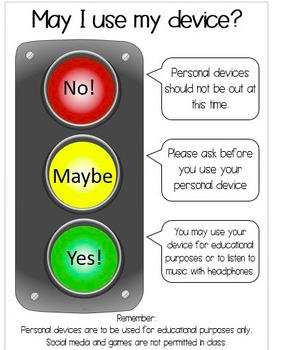This week’s debate regarding the use and existence of cellphones in the classroom raised a lot of great points that make it even harder for me to decide if I take the Agree or Disagree side. Jill and Tarina did a wonderful job representing the Agree side by pointing out that cellphones can be a distraction, they also increase negative behaviour, such as cheating, cyberbullying and sexting. The agree side was encouraging the use of school owned devices to keep our students safe without making cell phone addiction worse, since already 50% of kids feel they are addicted to their cell phones and according to Tanner Welton’s Ted Talk 80% of kids check their phones every 5 minutes.

Skyler and Alyssa though being on the Disagree side pointed out the importance of cellphones in the classrooms especially for health-, emergency-, and educational purposes. They believe that the term “ban” is quite harsh, instead the term “restricted” would be more fitting. They also underlined the importance of teaching our students appropriate cell phone use and how to regulate themselves with the help of the STOP sign.
Listening to both sides and all my classmates’ view points, I think it is important to take into consideration how old our students are. As my classmate, Christina pointed out, in her primary grade she prefers that her students do not have cell phones, since children often lose or misplace things, and they are not aware of how to navigate online world safely and responsibly either. This leads to my next question that was brought up during our class discussion: “How old should students be to have a cell phone?” My biggest concern when I see students having access to cell phones in the classroom is that often times they own a cell phone way before they are mature enough to make appropriate decisions. I made the same mistake by giving my daughter a cell phone when she turned 11. Her and her peers have not mastered the key concept that Brad described as “cell phone etiquette”. They do not know how to text and stay safe online causing a lot of worry and hurt feelings. As Sherrie mentioned this drama also makes its way to the schools creating extra issues for teachers to deal with. Especially due to the pandemic, I have been noticing children spending a significant amount of time on social media and I often question if their parents know what is actually happening in their children’s lives. As a parent and educator, being in contact mostly with newcomer families, I feel schools need to take an active role in having technology sessions for the parents where they can learn how to access the many platforms their children are using as well as how to raise responsible digital citizens.

I do feel that banning cell phones would be too harsh. They certainly have advantages, as my classmate, Mike shared his students using cell phones as a second screen during class time. I also think from an EAL point of view, it is great to have access to a translating app or even a dictionary right at your fingertips. For a newcomer life without being fluent in the respective country’s language can be very stressful and having access to a cell phone could help ease this. I would like to close with Dr. George Couros‘ words “… it absolutely needs to go much further than the idea that we can bring our devices into schools. It should be about what are we doing with them that improves learning?”
Thank you for reading my blog post! 🙂

Melinda, great blog post highlighting the challenges that come with having a cell phone. I thought your personal account of noting your daughters experience really shines a light on how giving a cell phone is one part, infusing that with meaningful and appropriate use may take more time. I was watching Young Sheldon and Mary (his mom) said to him, “I know you’re smart enough for college, I’m just not sure if you are smart enough”. I see a correlation here. Young people may have the intellectual ability to use a phone, but are they fully prepared for the many responsibilities, consequences (positive and negative) that comes with the device and connection? I thought your observation about your daughter and Nancie’s observations in the office- dealing with the underlying social issues that phones highlight shows a great need to teach not only about the cool apps, but also how we feel like we belong, how we can foster authentic connection and the importance of positive and uplifting relationships both with and without the phone.
Thank you for sharing your experiences. I especially enjoy our discussion time when we can learn from each other through an educator and parent perspective. I agree that schools should be holding parent or family nights to educate our communities about digital citizenship and what teens are doing online. I wonder whose job this is in our society to start these conversations? Even knowing what is out there and having resources, I am sure there are still many challenges you face with your daughter. Banning is not realistic in schools but would sure help alleviate some issues. It is a hard balance for a schools to attain. They need to have guidelines and teach students how to navigate the digital world in a positive way. Thanks for the post!